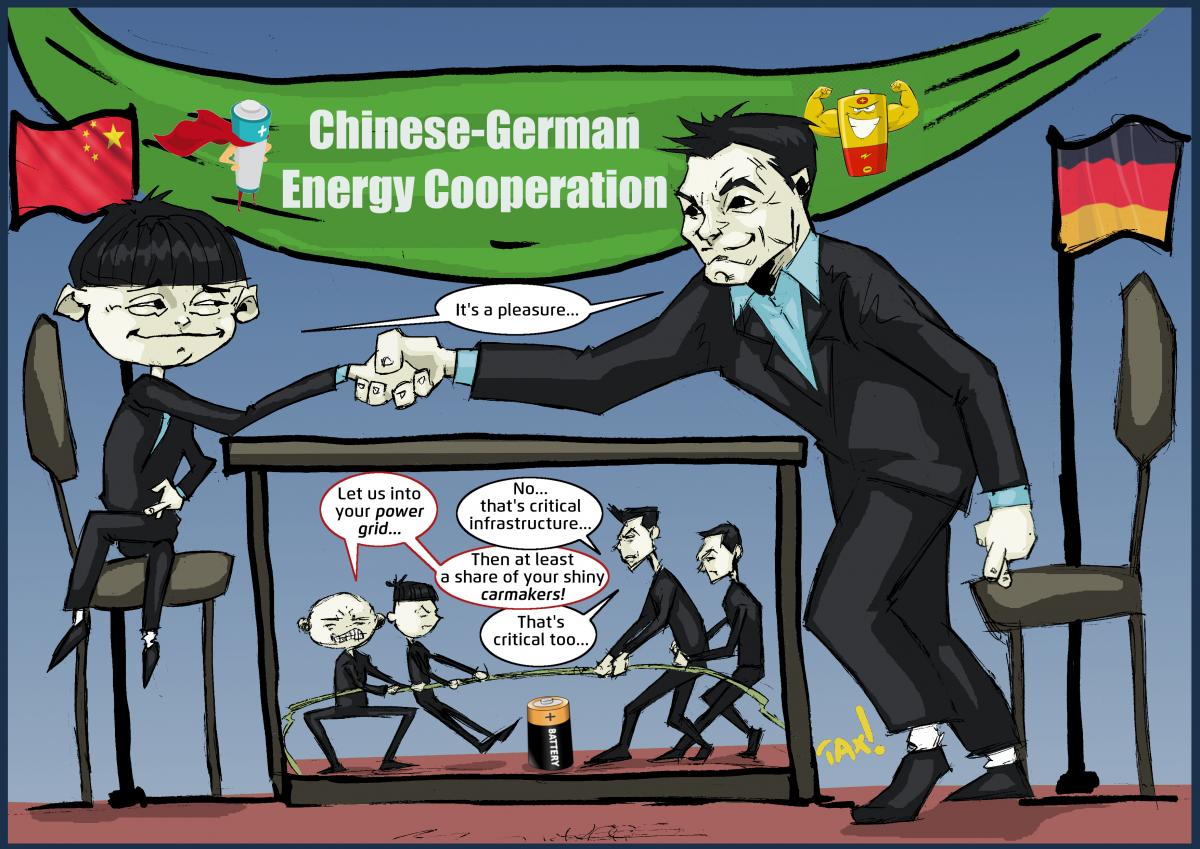Feeling heat on Nord Stream 2 / Greening traffic with autonomous cars
Deutsche Welle
Germany is facing greater pressure from the United States, central and eastern European countries, and the European Commission to cancel Nord Stream 2, the controversial pipeline project that would lead to more German imports of Russian natural gas, according to an article by Darko Janjevic on Deutsche Welle. But German officials are moving forward with the project, arguing that the country needs “a reliable source of energy to facilitate its long-term shift to renewable sources”, the author explains.
Read the article in English here.
For background, read the article Trump lashes out at Nord Stream 2, says Germany is “totally controlled” by Russia and the factsheet Germany’s dependence on imported fossil fuels.
Clean Energy Wire / Tagesspiegel Background
Members of Germany’s coal-exit commission used their second plenary meeting on Friday, 13 July to hear presentations about the “tasks, framework conditions and structural policy challenges” that are to form the basis for their decision-making in the coming months. After speaking to participants of the 6-hour meeting, Tagesspiegel Background reported that many members of the commission had heard “nothing new” and that there were split views on the presentation of worker representative Rüdiger Siebers (Vattenfall), who described the atmosphere in eastern German lignite mining region Lusatia as “bad” regarding a coal exit. Climate economist Ottmar Edenhofer, the designated director of the Potsdam Institute for Climate Research (PIK), called for a floor price in the European Emissions Trading System (EU ETS) to prevent other countries from emitting more once Germany exits coal.
Find background on Germany’s coal exit commission here and running updates on the commission’s work here.
Association of German Chambers of Commerce and Industry
Autonomous vehicles will make road transport both safer and more environmentally friendly, according to a study commissioned by the Association of German Chambers of Commerce and Industry (DIHK). For that reason, the development of autonomous vehicle technology should be accelerated, the association writes in an accompanying press release. “Germany has the know-how to take a leadership role in the development and introduction of this new technology,” Martin Wansleben, chief executive of the association, said.
Download the study in German here and read the press release in German here.
For background, read the article Economy minister Altmaier calls for mobility transition push.
Handelsblatt
Nine federal states’ ministers of the environment and energy are calling for the introduction of a minimum CO2 price at the federal level, according to an article in Handelsblatt. In a letter to federal economy minister Peter Altmaier, the ministers warned time is short for Germany to ensure it meets its future emissions reduction targets. The ministers also expressed their support for French President Emmanuel Macron’s push for the imposition at the European level of a minimum price of 30 euros per tonne of CO2.
Read the article in German here.
For background, read the articles German environment minister open to national carbon price and Energy minister rejects idea of changing fees and taxes on energy.
tageszeitung (taz)
The Federal Railway Authority has granted French company Alstom permission to operate passenger service on the German rail network with its new, hydrogen fuel-cell-powered train, according to an article in tageszeitung (taz). The train, the Coradia iLint, is the world’s first to be powered by hydrogen fuel cells.
Read the article in German here.
For background, read the factsheets Energiewende in transportation: Vague goals, modest strides and The role of biofuel and hydrogen in Germany’s transport Energiewende.
Frankfurter Allgemeine Zeitung
Allowances for emitting a tonne of CO2 have tripled in price, reaching nearly 16 euros on the European Energy Exchange on Friday, the Frankfurter Allgemeine Zeitung writes. The rise follows trading being at around 5 euros a year ago. Rolf Schmitz, head of utility RWE, draws the conclusion that higher prices for CO2 allowances would reduce emissions from fossil power plants automatically so that a “symbolic end date” for coal wasn’t going to be necessary, author Andreas Mihm reports. Jörn Higgen, trade expert at energy company Uniper, attributes the increase to recent reforms to the EU ETS, including a forthcoming deletion of excess certificates on the market. “In anticipation of this shortage, market participants have apparently begun to acquire carbon credits,” he said.
For background, read the factsheet Understanding the European Union’s Emissions Trading System.
Tagesspiegel
Global warming is shifting climate zones throughout Europe, Ernst Rauch, climate expert at Munich Reinsurance Company, said in an interview with Tagesspiegel. Germany will have vegetation similar to that found in Northern Italy by the end of the century unless carbon emissions fall dramatically, he said. Farmers need to adapt to the new climate, Rauch added. “In the medium-term, farmers in Brandenburg will not be able to grow grain; instead, they’ll have to plant olive trees,” he said.
Read the interview in German here.
tageszeitung (taz)
Environment minister Svenja Schulze finds herself in conflict with four fellow ministers on many issues, such as phasing out lignite and conserving water, writes Bernhard Pötter in tageszeitung (taz). But Schulze has signalled her willingness to compromise, including in the context of the recently-formed coal-exit commission: she has urged the commission to first decide on jobs and structural assistance for affected regions before mentioning the shutdown of coal-fired power plants, according to Pötter. “Schulze has a tough job,” he writes.
Read the article in German here.
For background, read the article New German environment minister faces steep uphill battle on climate.
Clean Energy Wire
First a Chinese battery factory in Thuringia (and renewed interest of the Chinese state grid in German network operator 50Hertz), then the Nord Stream 2 controversy – Germany’s energy cooperation with the East is coming into focus, something our visiting cartoonist Mwelwa Musonko (@MwelxTax) takes aim at in his latest illustration.



